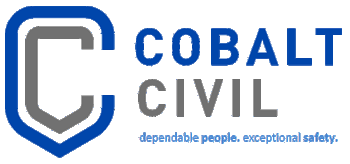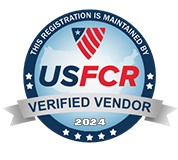Steady progress has been made in the construction industry to regulate its impact on the surrounding environment when performing any type of construction or excavation work. Cobalt strives to be good stewards of the land by adapting state and customer environmental standards in those sensitive areas like wetlands, streams, lakes, or waterways. Our Storm Water Pollution Prevention Plan (SWPPP) and environmental procedures integrate our environmental responsibilities into business practices.
Pre-construction environmental site inspection for a firsthand look after site plan review
Required SWPPP permits are posted onsite in a weather-proof cabinet
Use industry BMP’s (best management practices) in correlation with stabilizing disturbed soil (pre- and post-construction), reclamation areas, and use of SWPPP inspection frequency per requested site location
Multiple points of onsite inspection to keep all environmental facets in compliance
Spill Prevention Control and Counter (SPCC) measure manual and spill prevention training ensures that each employee understands how to immediately respond and report any spill or environmental hazard that may occur
Internal reviews of all inspections filed to analyze findings for corrective action needed or quality issues relating to a deficiency in order to correct
Our environmental inspectors receive training through private agencies, such as, Storm water ONE, and the White River Alliance MS4 Training, and various state agencies including MDEQ, TNEPSC, and VADEQ. All environmental inspectors receive a 40-hour field practicum and complete continuing education in the field of SWPPP. Cobalt is working to become ISO 1400 certified.









